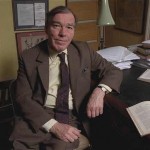 As students move into and beyond A Level history they should be aware of how the discipline becomes more specialised. Military history has never really been my thing but I have always had great admiration for two British historians of this genre – both of whom did not just write about generals, but also were able to write about was it was actually like to fight in a war.
As students move into and beyond A Level history they should be aware of how the discipline becomes more specialised. Military history has never really been my thing but I have always had great admiration for two British historians of this genre – both of whom did not just write about generals, but also were able to write about was it was actually like to fight in a war.
Last April the great Richard Holmes died. There is a good obituary for him here. My favourite book by him is Tommy – a typically detailed account of what made the fighting man “tick” in the First World War. Nick Rennison writes of it “Tommy is Richard Holmes’s tribute to the ghosts of the millions of ordinary soldiers who fought in the First World War. The book also reflects the dissatisfaction he feels at the way we still remember it. Too often we approach World War I through the literature it inspired. The poems of Wilfred Owen, Siegfried Sassoon and others have their own truths to offer, but Holmes would dispute the assumption that they represent the experiences of the majority of those who endured the trench warfare of the Western Front.”
Sir John Keegan died on 2nd August, and his obituary from the Telegraph can be found here. Keegan also wrote about the harsh realities of fighting in a battle in his seminal text The Face of Battle – the Amazon review describes it as follows. Keegan looks “at the direct experience of individuals at ‘the point of maximum danger’. It examines the physical conditions of fighting, the particular emotions and behaviour generated by battle, as well as the motives that impel soldiers to stand and fight rather than run away. And in his scrupulous reassessment of three battles, John Keegan vividly conveys their reality for the participants, whether facing the arrow cloud of Agincourt, the levelled muskets of Waterloo or the steel rain of the Somme.’ In this book, which is so creative, so original, one learns as much about the nature of man as of battle.”
If military history interests you you could not do much better than starting by reading either Holmes or Keegan. Perhaps it might be best to leave the last words to Sir John Keegan. These are his opening line in “The Face of Battle” – they perhaps reflect the wider challenge faced by all who would write history.
“I have not been in a battle; not near one, nor heard one, nor heard one from afar, nor seen the aftermath. I have questioned people who have been in battle; have walked over battlefields … I have read about battles, of course, have talked about battles, have been lectured about battles and, in the last four or five years, have watched battles in progress, or apparently in progress, on the television screen … But I have never been in a battle. And I grow increasingly convinced that I have very little idea of what a battle can be like …”
Mr Kydd.



